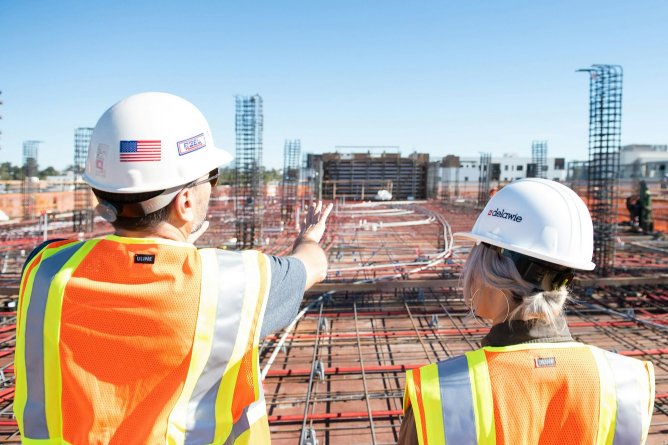Effective leadership is critical to the success of any construction company. The ability to inspire, guide, and drive a team towards achieving common goals is what sets top construction executives apart. Members of the Global Construction Fraternity (GCF) can learn valuable leadership lessons from industry leaders who have successfully navigated the complexities of the construction sector. Here are some key leadership lessons from top construction executives, with insights applicable to the Indian market.
- Visionary Thinking
Top construction executives are visionary thinkers who can see the big picture and set a clear direction for their companies. They have a long-term perspective and are able to anticipate future trends and challenges. For GCF members, developing a visionary mindset involves staying informed about industry developments, embracing innovation, and setting ambitious but achievable goals. Visionary leaders inspire their teams by communicating a compelling vision and demonstrating a commitment to achieving it.
- Effective Communication
Effective communication is a cornerstone of successful leadership. Top construction executives excel at articulating their vision, goals, and expectations clearly to their teams. They also prioritize active listening and encourage open dialogue. GCF members can enhance their communication skills by regularly engaging with their teams, providing constructive feedback, and fostering a culture of transparency. Clear and consistent communication helps build trust, align efforts, and ensure everyone is on the same page.
- Empowerment and Delegation
Empowering and delegating responsibilities to team members is a hallmark of strong leadership. Top construction executives understand the importance of trusting their teams and providing them with the autonomy to make decisions. For GCF members, this means identifying the strengths and potential of each team member, assigning them meaningful tasks, and giving them the authority to execute those tasks. Empowering employees fosters a sense of ownership and accountability, leading to higher productivity and job satisfaction.
- Adaptability and Resilience
The construction industry is dynamic and often unpredictable. Top executives demonstrate adaptability and resilience in the face of challenges. They are able to pivot quickly, find solutions to problems, and remain focused on their goals. GCF members can cultivate adaptability by being open to change, continuously learning, and maintaining a positive attitude during tough times. Resilient leaders inspire confidence and motivate their teams to overcome obstacles and achieve success.
- Commitment to Quality and Safety
A commitment to quality and safety is non-negotiable for top construction leaders. They prioritize high standards in construction practices and ensure the safety of their workers. GCF members can demonstrate this commitment by implementing rigorous quality control measures, adhering to safety regulations, and investing in training and development. By prioritizing quality and safety, leaders build a reputation for reliability and integrity.
- Innovative Problem-Solving
Top construction executives are innovative problem-solvers who think creatively and strategically. They are not afraid to explore new ideas and approaches to tackle challenges. For GCF members, fostering a culture of innovation involves encouraging experimentation, seeking input from diverse sources, and staying open to new technologies and methodologies. Innovative leaders drive progress and create competitive advantages for their companies.
- Building Strong Relationships
Building and maintaining strong relationships is essential for successful leadership. Top construction executives invest time in nurturing relationships with clients, stakeholders, and employees. They understand the value of collaboration and networking. GCF members can strengthen their relationships by actively engaging with their professional network, participating in industry events, and demonstrating empathy and respect in their interactions. Strong relationships lead to trust, loyalty, and long-term partnerships.
- Continuous Improvement
The pursuit of continuous improvement is a key trait of effective leaders. Top construction executives are committed to personal and professional growth, as well as the development of their teams. They seek feedback, learn from experiences, and strive for excellence in all aspects of their work. GCF members can embrace continuous improvement by setting clear performance metrics, regularly evaluating their progress, and investing in training and development programs. A culture of continuous improvement drives innovation and enhances overall performance.
Conclusion
Leadership in the construction industry requires a combination of vision, communication, empowerment, adaptability, commitment to quality and safety, innovative problem-solving, relationship-building, and continuous improvement. By learning from top construction executives and applying these leadership lessons, members of the Global Construction Fraternity can enhance their leadership skills and drive their companies towards success. Effective leadership not only ensures the successful execution of projects but also fosters a positive and productive work environment, contributing to the long-term growth and sustainability of the construction industry.

